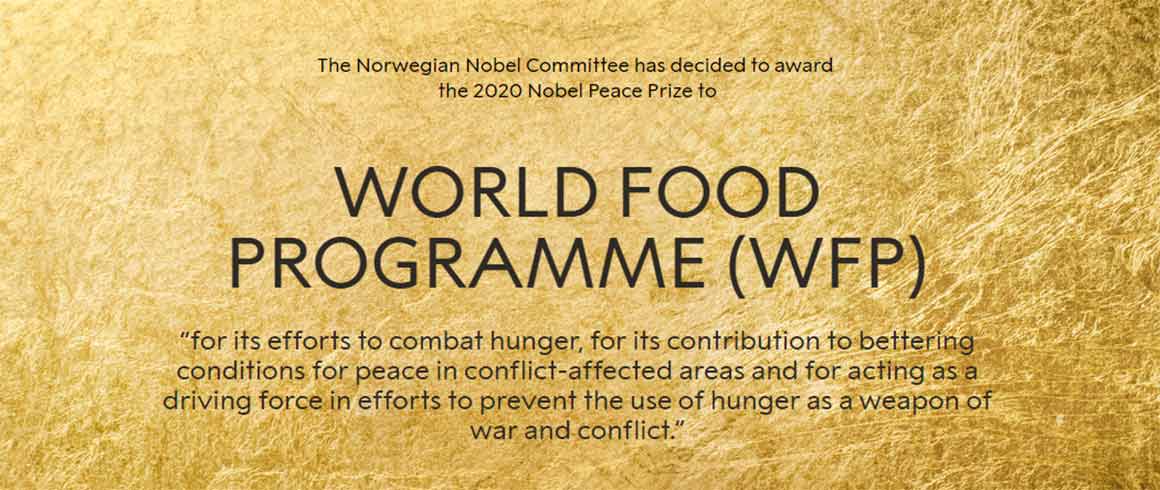The prestigious Nobel Prize was established in 1901 so 2020 marks its 119th edition. The Nobel Prizes in the categories of Medicine or Physiology, Physics, Chemistry, Literature, Peace and Economics are respectively announced from October 5 to 12. Cattolicanews publishes opinions from the University’s professors regarding these prestigious international awards, attributed to laureates who have distinguished themselves in the various fields of human knowledge and who have benefited humanity with their research.
Raul Caruso, Professor of Peace Economics at the Faculty Linguistic Sciences and Foreign Literatures at the Milan campus of Università Cattolica, comments on the Nobel Peace Prize awarded today to the World Food Programme for its commitment to combating hunger, for its contribution to bettering conditions for peace in conflict-affected areas and for acting as a driving force in efforts to prevent the use of hunger as a weapon of war and conflict.
Commenting on the awarding, Professor Caruso reiterated the «very close link between food insecurity and armed conflict, especially in the most fragile countries» and stressed two points in particular. The first is that it is an award «given to a United Nations agency and this reminds us that multilateral cooperation among countries is the essential key to peacekeeping». «Indeed, to build peace, there is no alternative to international cooperation and multilateral dialogue in the appropriate fora», continued Caruso.
The second thought went to one of the factors of food insecurity: «the lack of access of the most fragile to food. Many areas of the world are desertifying due to climate change and this desertification has generated not only a lack of food but also a lack of peace for many people».


